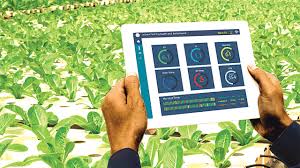The farmer is best positioned to understand the dimensions, characteristics, and correlations of the risks affecting the farm. The responsibility of managing the risks associated with farming activities lies with the farmer, who must evaluate different strategies to address these risks.
Generic strategies to reduce risk include risk sharing, pooling, and diversification. Insurance serves as a major method of pooling risk, aimed at reducing the impact of risk when it occurs.
Meaning of Agricultural Insurance
Agricultural insurance is a financial tool that transfers risks associated with farming to a third party through the payment of a premium that reflects the true long-term cost to the insurer for assuming those risks.
Agricultural insurance is a special line of property insurance applied to agricultural firms. Recognizing the specialized nature of this type of insurance, companies operating in this market either have dedicated agribusiness units or outsource the underwriting to agencies that specialize in it.
Agricultural insurance is defined in the Nigerian Agricultural Insurance Scheme (NAIS) operation guideline (1989) as the stabilization of income, employment, prices, and supplies of agricultural products.
This is achieved through regular and deliberate savings and the accumulation of funds in small installments by many farmers in favorable periods, to support some or a few participants in unfavorable periods.
Thus, agricultural insurance may be seen as a fund into which all insured parties contribute (referred to as premiums), with the right to call on the fund for appropriate payment if the insured event occurs. Agricultural insurance arose from the need to manage the variety of risks and uncertainties faced in the agricultural sector.
Several features validate agricultural insurance as a special line of business. These include the challenges of achieving adequate diversification due to the nature of risks involved, asymmetries of information in underwriting, the geographical dispersion of agricultural production, and the complexity of biological production processes. These factors require skilled and expert underwriting, justifying agricultural insurance as a unique business line.
Read Also: 5 Amazing Health Benefits of Triphala (Three fruits)
Scope of Agricultural Insurance

Agricultural insurance is designed to provide coverage for financial losses incurred due to reductions in expected outputs from agricultural products. The major products are crops and livestock, with others including fisheries and forestry.
Crop insurance and livestock insurance represent the two broad categories for which commercial insurance covers are designed. Due to the complexities introduced by mechanization, a broad range of traditional policies—such as personal accident, fire, vehicle, machinery, and public liability covers—are essential components of a comprehensive agricultural insurance package.
Agricultural investments are among the riskiest economic ventures, primarily due to the reliance on unpredictable weather conditions, such as hailstorms, floods, droughts, and other natural hazards, which make income from crop production highly unstable.
Other agricultural products, like livestock, poultry, and dairies, face catastrophic risks, as evidenced by recent cases of bird flu in Nigeria. Agricultural insurance policies protect farmers against these unforeseen circumstances by offering indemnification.
These policies also serve as securities for banks, covering financial losses farmers suffer from damage to their products and providing funds for loan servicing. The ability of the agricultural sector to hedge itself from the vagaries of nature is critical to its development and growth.
Natural disasters, such as droughts, floods, and cyclones, are major sources of risk in agriculture. Large tracts of farmland are vulnerable to droughts of varying severity.
Globally, millions of hectares of crops are damaged annually by natural calamities and adverse seasonal conditions, significantly impacting agricultural productivity. Given the highly risky nature of agriculture, with its dependence on weather conditions, the need for agricultural insurance cannot be overstated.
Most farmers use various forms of insurance to protect against specific types of losses. Fire insurance provides liquidity to replace losses due to fire. Commercial fire insurance is often more cost-effective than self-insurance (maintaining a reserve of funds to offset a loss).
Risks with a low probability of occurrence but severe consequences are the most logical to insure against. Liability, major medical, disability, and fire/extended coverage on buildings, equipment, and livestock are common types of insurance many farmers hold.
Self-insurance, typically factored into the normal cost of doing business, is more cost-effective for risks that occur frequently and cause only minor problems. For example, while insurance could protect against hog deaths in finishing, many farmers average out these losses as part of normal production costs.
A variety of insurance types and coverage levels are available. Financial position often determines whether to self-insure or purchase commercial insurance. For instance, a financially strong farmer who only uses a car to drive to church may choose not to carry collision insurance, even with a high deductible, while a farmer in a weaker financial position whose spouse drives to work daily may opt for collision insurance with a minimal deductible.
The nature of agricultural production and products has made the design and implementation of an appropriate insurance program for agriculture a complex and challenging task.
Read Also: Sheep Milk Production Complete Guide
Benefits of Agricultural Insurance

The overall benefits of agricultural insurance include:
1. Cushions the shock of crop and livestock loss: Agricultural insurance assures farmers minimum protection against disastrous losses.
2. Spreads losses over time and space: Crop and livestock insurance help distribute losses, contributing to agricultural income, which is significant to national income. This, in turn, impacts national prosperity.
3. Encourages greater investment in agriculture: Agricultural insurance gives farmers confidence to invest more in their ventures.
4. Improves access to agricultural credit: It enhances the farmer’s position when seeking agricultural loans or credit.
5. Reduces government financial burden: Agricultural insurance lessens the uncertain financial burden on governments, which would otherwise have to provide relief during disasters.
6. Stabilizes prices and supplies: Agricultural insurance helps normalize the availability of agricultural supplies and stabilize market prices.
7. Maintains the dignity of farmers: Insurance safeguards farmers’ dignity by providing financial security during challenging times.
8. Facilitates record-keeping: It enables systematic records of crop and livestock production.
Agricultural insurance, therefore, plays a vital role in protecting the farmer and ensuring the stability of agricultural activities, which are essential to national development.
Do you have any questions, suggestions, or contributions? If so, please feel free to use the comment box below to share your thoughts. We also encourage you to kindly share this information with others who might benefit from it. Since we can’t reach everyone at once, we truly appreciate your help in spreading the word. Thank you so much for your support and for sharing!
Read Also: The Effect of Solid Waste on Business Environments

